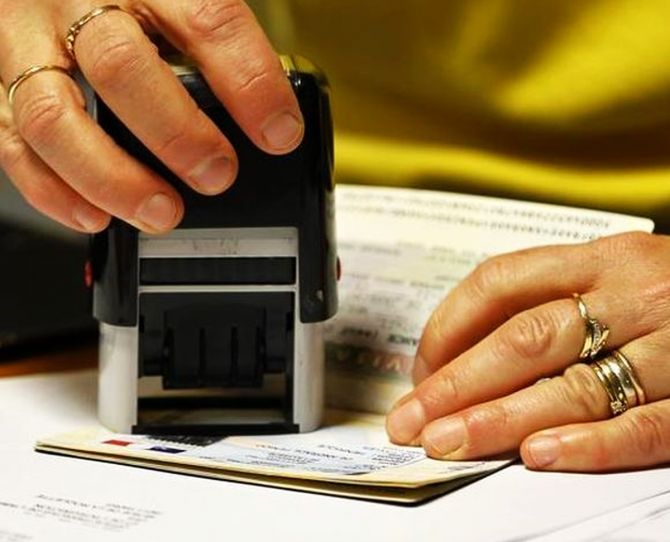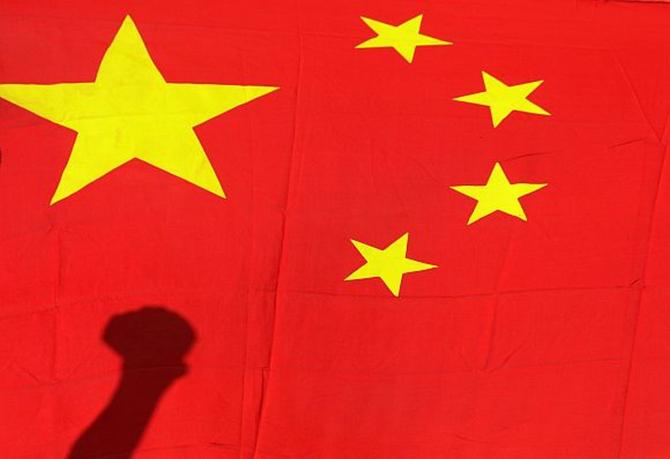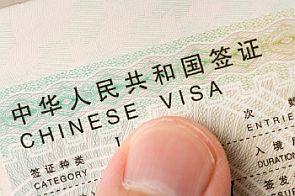The Chinese inference is that if the Chinese visa is embossed on an Indian passport, held by Indian citizens from Arunachal Pradesh, it may be tantamount to recognising Indian sovereignty over Arunachal Pradesh, states Rup Narayan Das.

The stapled visa issued to Indian nationals from Arunachal Pradesh once again cropped up casting a shadow over strained India-China relations.
Three players from Arunachal Pradesh who were part of India's Asian Games contingent were issued stapled visas which is not acceptable to India.
In July, these three players could not travel to Cheng in China to participate in the World University Games.
India has strongly responded to the discriminatory visa given to Indian citizens from Arunachal Pradesh contending that the Chinese authorities have, in a targeted and premeditated manner, discriminated against Indian sportspersons from Arunachal Pradesh by denying them accreditation and entry to the Asian Games currently being held in Hangzhou, China.
The practice of issuing stapled visas instead of a proper visa by the Chinese embassy in New Delhi to Indian citizens from Arunachal Pradesh and earlier in respect of Indian citizens from Jammu and Kashmir has been a contentious issue in India-China relations.
In 2010, Lieutenant General B S Jaswal, then the Northern Army commander, was issued a stapled visa by the Chinese embassy in New Delhi, on the ground that he commanded a disputed territory (Jammu and Kashmir), to visit China to participate in a defence exchange program, it created disquiet in India.
Subsequently, the issue was discussed during then Chinese premier Wen Jiabao's visit to India in December 2010.
New Delhi witnessed a welcome change of attitude when the Chinese embassy issued proper visas to journalists from Jammu and Kashmir, accompanying then prime minister Dr Manmohan Singh when he participated in the BRICS summit in Sanya, China, in April 2011.
Since then, there is no instance of a stapled visa being issued to residents of Jammu and Kashmir.
The Chinese embassy in New Delhi, however, continues with the practice of issuing stapled visas to Indian citizens from Arunachal Pradesh.

The practice of issuing stapled visas to Indian citizens from Arunachal Pradesh is based on the Chinese perspective of its claims over Arunachal Pradesh, which they call 'South Tibet'.
India's claim over Arunachal Pradesh, which borders China, is based on the McMahon Line, drawn at the Simla Conference in 1914.
Consequent to Independence in 1947, India inherited the McMahon Line in the eastern sector of the India-China border.
China does not recognise the McMahon Line. India not only exercises administrative and political control over the territory, but also exercises effective sovereignty over Arunachal Pradesh.
Presumably, the Chinese inference is that if the Chinese visa is embossed on an Indian passport, held by Indian citizens from Arunachal Pradesh, it may be tantamount to recognising Indian sovereignty over Arunachal Pradesh.
The Indian position is that if the holder of a stapled visa with an Indian passport is allowed to travel to China, it may be construed as conceding the Chinese claim over Arunachal Pradesh.
India does not regard Arunachal Pradesh as disputed. The Indian stance on the issue is that by following a two-track visa policy, China has disputed the legality of India's international border, thereby impinging adversely on its national sovereignty as well as territorial integrity.
The Government of India time and again has articulated its clear and consistent position about the issue of stapled visas issued to Indian citizens from Arunachal Pradesh maintaining that India's position is that Arunachal Pradesh is an integral part of India and that there should be no discrimination against visa applicants of Indian nationality on grounds of domicile and ethnicity.

As the stapled visa issue in respect of Indian citizens from Arunachal Pradesh has caused intermittent annoyance in the relationship between the two countries, it is time that the issue is addressed thoughtfully and imaginatively in the spirit of bilateral agreements on confidence building measures signed between the two countries in 1993, 1996 and in 2005.
The 'Political Parameters and Guiding Principles' agreed between the two countries in 2005 envisages that 'in reaching a boundary settlement, the two sides shall safeguard due interests of their settled populations in the border areas'.
If the spirit of this provision is understood in a broader sense, then it is only reasonable to expect that Beijing should be sensitive to the interests of Indian citizens from Arunachal Pradesh in granting them a visa so that China-bound residents of Arunachal Pradesh are not returned from the airport.
It is not out of context to mention in this connection that sometime back when China started issuing new electronic passports containing watermarks of a map of the People's Republic of China, which depicted Arunachal Pradesh and Aksai Chin as part of China, the Indian embassy in China started stamping a round seal of the map of India showing India's correct boundaries on visas stamped on such passports.
The stapled visa issue was discussed at the 17th round of Special Representative talks in New Delhi. The Special Representative talks are almost defunct. The two sides should put their heads together to find a mutually agreed formula, perhaps with some kind of a disclaimer without prejudice to the final border settlement.
Dr Rup Narayan Das, a China scholar, is currently a Senior Fellow at the Indian Council of Social Science Research at the Indian Institute of Public Administration, New Delhi. The views expressed in this column are personal.
Feature Presentation: Rajesh Alva/Rediff.com










 © 2025
© 2025